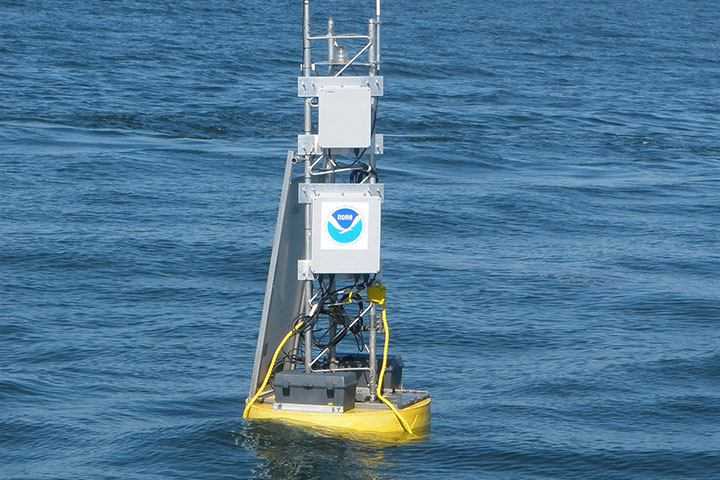A new sensor platform for the measurement of evaporation across the Great Lakes
A new sensor platform for the measurement of evaporation across the Great Lakes
A new sensor platform for the measurement of evaporation across the Great Lakes
Program: Water Center U-M Capacity Building Grants
All Water Center U-M Capacity Building Grants projects »

Photo courtesy of NOAA
Investigators
Branko Kerkez, U-M Civil and Environmental Engineering
Andrew Gronewold, U-M Civil and Environmental Engineering and NOAA Great Lakes Environmental Research Lab
Project Summary
The economic impact of recent drops in lake water levels underscores the need to urgently improve our understanding of the Great Lakes water budget. Given that lake surface area comprises nearly one third of the entire basin, the component of overlake evaporation presents a major knowledge gap in lake water balance. Scientific understanding of the effects of evaporation on water levels is impeded by limited evaporation data.
This project will measure overlake evaporation through the development of an evaporation sensor platform. The direct output of the project will be a novel, costeffective and turnkey evaporation instrument that can be readily deployed on existing NOAA buoys and lake shores to provide critically-needed, real-time, distributed measurements of evaporation across the entire Great Lakes.
A major outcome of this project is the validation of the project team’s proposed evaporation instrument, which is critical to achieving their broader goal of deploying a real-time evaporation forecasting system that will inform economic and water resource managers across the entire Great Lakes basin. Following successful validation of the instrument, the project team will work with other federal agencies (e.g., NSF, NOAA, EPA) to secure funds necessary to support a larger, more distributed initiative. The project will also result in recognition of U-M researchers as leaders in real-time sensor and system-level solutions for freshwater research, and it will strengthen collaborative partnerships between U-M and NOAA-GLERL.
The specific objective of this proposal is to accurately measure overlake evaporation through the development of an evaporation sensor platform, which will combine automated measurements with on-board intelligence to derive real-time estimates of evaporation. To this end, the team will develop four evaporation sensor platforms and evaluate each instrument’s accuracy through an overlake deployment at an existing NOAA buoy site. The sensors will integrate with NOAA’s existing telemetry system, and all sensor measurements from the study will be available in real time via the web.